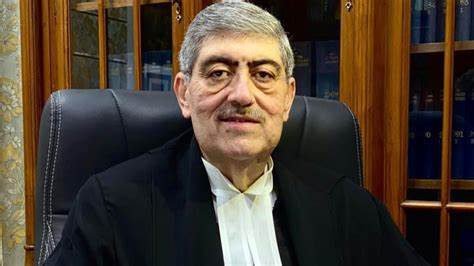LI Network
Published on: 16 September 2023 at 14:46 IST
Supreme Court Justice Sanjay Kishan Kaul has voiced concerns about the perception of the Indian judiciary as a universal remedy for societal issues. Justice Kaul emphasized that the judiciary should refrain from intervening in matters solely due to disagreements with government policy decisions.
Speaking at an event held last month during the launch of a book authored by retired Supreme Court judge AK Sikri, titled “Constitutionalism and the Rule of Law in a Theatre of Democracy,” Justice Kaul underscored the importance of judicial restraint.
“I have always said that the judiciary should not intervene just because it disagrees with the government policy or the quality of governance. Yet we see many examples of this in India,” Justice Kaul remarked.
The judge expressed concern that innovations like diluting the principle of locus standi have contributed to the perception that the higher judiciary is the solution to various societal problems in India.
However, Justice Kaul cautioned against overreliance on the judiciary for addressing fundamental moral and political controversies, as this could lead to courts becoming political decision-making bodies, thereby disregarding the principle of separation of powers.
“In fact, several of these questions, which are given constitutional color, are not capable of judicial resolution,” he added.
Furthermore, he pointed out that excessive reliance on courts to direct policy changes might distance substantive policy-making from democratic politics, potentially damaging the democratic fabric of the country in the long run.
Justice Kaul suggested alternative avenues for effecting policy changes, citing the example of Ireland, which, despite the option to approach the Constitutional court, opted for a public referendum in 2018 to legalize abortions, showing that public reasoning and debate can be effective tools for societal change without judicial intervention.
He also referenced the MeToo movement as a case where public awareness, public apologies, and acknowledgments were utilized to address issues of sexual harassment without resorting to judicial or institutional processes.
Justice Kaul laid emphasis for a culture where social and political problems are critically examined, rather than automatically brought before a Constitutional court, emphasizing that solutions arrived at openly tend to be more equitable and enduring.
Retired Justice Rohinton Nariman, who also spoke at the event, highlighted the importance of preserving Constitutional values in democratic governments worldwide, referencing Israel’s recent legislative changes affecting the judiciary as a cautionary example of what to avoid.
Justice Nariman praised India’s judicial independence, secured through past judgments and the right to appoint judges, emphasizing the need to protect this independence from potential encroachment by the executive branch.

